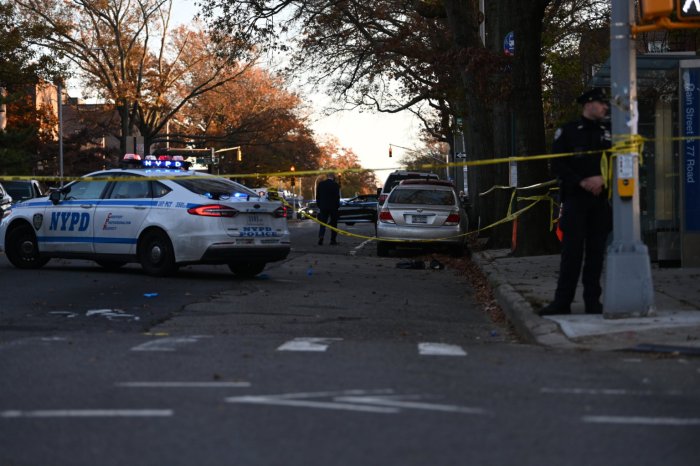By Stephen Witt
Issues and complaints relating to three clinics treating drug addicts in Clinton Hill might soon see some resolution thanks to a stakeholder alliance now being formed. The three methadone clinics in close proximity to each other include the Addiction Research and Treatment Corporation (ARTC) center at 937 Fulton Street, St. Vincent’s Catholic Center at 635 Classon Avenue and the Interfaith Medical Center Clinic at 500 St. Marks Avenue. Merchants and residents along the Fulton Street strip have been alleging that while most addicts received their medicine and left, some lingered around the clinics drawing heroin dealers and criminal elements. “The problem is it’s not the clients hanging around as it is the other anti-social elements being attracted there from other communities,” said one merchant along the strip. “I suspect the drug of heroin is being sold in the area and while it may be to a small minority of the clients, the word is out and everyone is coming this way,” the merchant added. The merchant observed several people along the strip nodding off, and said several times ambulances were called in what appeared to be overdoses. In response to these types of issues, Assemblymember Hakeem Jeffries and City Councilmember Letitia James pulled together a Jan. 24 meeting of stakeholders to discuss instituting the Fulton Street Alliance, similar to alliances formed in Harlem that deal with methadone clinics. In the alliance, all the stakeholders work together in both helping the patients and clinics while ensuring the quality of life in the neighborhoods does not go down. At the meeting were providers from the clinics, patients, merchants, residents, and representatives from the police, Kings County District Attorney’s Office and the state Office of Alcoholism and Substance Abuse. “It’s a collaborative effort to make sure all interested parties work together on being better neighbors to each other,” said Jeffries. “Some would have us ignore the issue and other would prefer to demonize the methadone clinics. We believe the best approach is to bring all sides together to work this out,” he added. Jeffries said the methadone clinics do serve a valuable function in helping fellow citizens deal with their opiate addiction and become productive members of society. However, in some instances the clinics do create some quality of life issues as a result of some individuals who are part of the underground economy and who prey on both patients and community members, he said. Under the Harlem alliance, a community agreement was reached that protected patient confidentiality, but also instituted progressive measures to curtail illegal activity. ARTC Senior Vice President Dr. Robert Sage, who is familiar with the 125th Street Alliance in Harlem, said the meeting was very productive with nobody pointing fingers at each other. Everyone agreed a better police presence in the area is needed and two components of the alliance agreement have already been hammered out, Sage said. Sage said the first agreement is among program providers that patients terminated from one program because of illegal activity will not be accepted in any of the other nearby programs. This will take out some criminal elements and decrease loitering, he said. Sage said it was agreed upon that the agencies and stakeholders involved would meet regularly to discuss ongoing issues and strategies for improving the quality of life in the neighborhood. Both these components are currently being utilized in the 125th Street Alliance, Sage said. A police source said the 88th Precinct is aware of the situation and working with the clinics and the community on the issues involved. James said she considered the first meeting of the Fulton Street Alliance a success because all parties involved were at the table. “The community, public officials, clients and staff aired their views, and as a group, we will continue to discuss the issues as a community, with common interests and concerns,” said James.





























